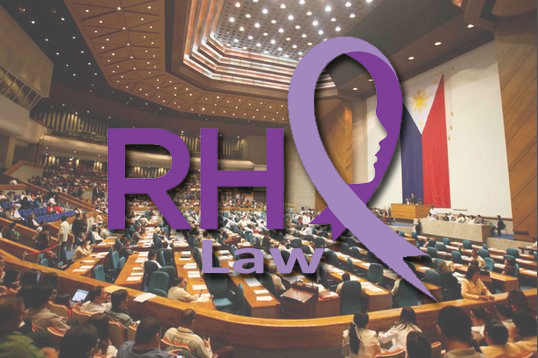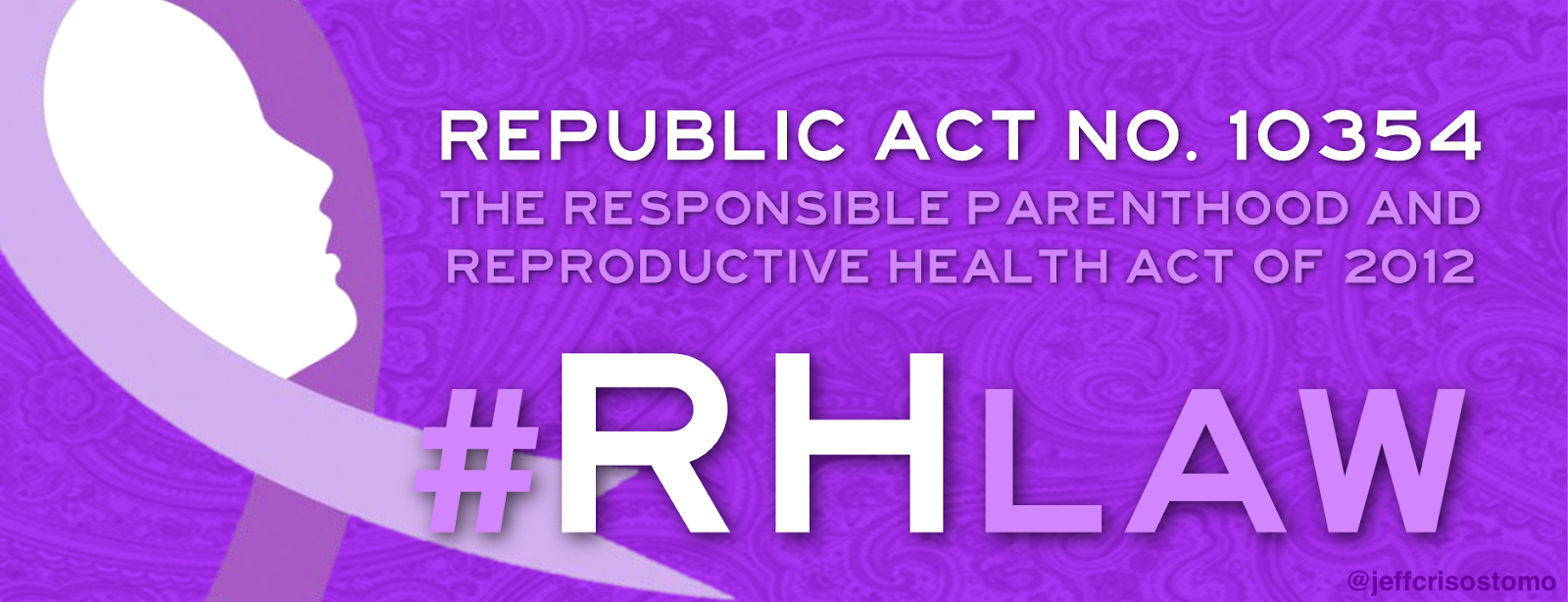QUEZON City, Philippines (January 27) – The Reproductive Health Law is now being deliberated in the Senate so that it can be fully implemented by November 30 – the administration’s target date. So before the law is fully implemented, let’s get to know what Reproductive Health is, and what are the policies and plans under this somewhat contentious and controversial law.

The Reproductive Health Law or the Republic Act No. 10354 is an act of providing for a national policy on responsible parenthood and reproductive health. It was enacted on December 21, 2012 during the term of former President Benigno Aquino III.

It is stated on the Section 2 policy that:
The State recognizes and guarantees the human rights of all persons including their right to equality and nondiscrimination of these rights, the right to sustainable human development, the right to health which includes reproductive health, the right to education and information, and the right to choose and make decisions for themselves in accordance with their religious convictions, ethics, cultural beliefs, and the demands of responsible parenthood.
It was criticized by many religious groups and became a controversial issue before it was declared constitutional last April 2014 by the Supreme Court.
One of the challenges faced by our country is how to prevent or lessen the occurence of early pregnancies and pre-marital sex. The RH bill includes the Reproductive Health Care – which offers a possible solution to this challenge. Reproductive Health Care includes:
(1) Family planning information and services which shall prioritize raising the awareness of women of reproductive age as regard their respective cycles – making them aware when when fertilization is highly probable, as well as highly improbable;
(2) Maternal, infant and child health and nutrition, including breastfeeding;
(3) Proscription of abortion and management of abortion complications;
(4) Adolescent and youth reproductive health guidance and counseling;
(5) Prevention, treatment and management of reproductive tract infections (RTIs), HIV and AIDS and other sexually transmittable infections (STIs);
(6) Elimination of violence against women and children and other forms of sexual and gender-based violence;
(7) Education and counseling on sexuality and reproductive health;
(8) Treatment of breast and reproductive tract cancers and other gynecological conditions and disorders;
(9) Male responsibility and involvement and men’s reproductive health;
(10) Prevention, treatment and management of infertility and sexual dysfunction;
(11) Reproductive health education for the adolescents; and
(12) Mental health aspect of reproductive health care.
In addition, the RH bill also includes hiring of proficient health professionals and upgrading health care facilities across the country:
SEC. 6.Health Care Facilities. – Each LGU, upon its determination of the necessity based on well-supported data provided by its local health office shall endeavor to establish or upgrade hospitals and facilities with adequate and qualified personnel, equipment and supplies to be able to provide emergency obstetric and newborn care: Provided, That people in geographically isolated or highly populated and depressed areas shall have the same level of access and shall not be neglected by providing other means such as home visits or mobile health care clinics as needed:Provided, further, That the national government shall provide additional and necessary funding and other necessary assistance for the effective implementation of this provision.
If and when Congress ratifies the Act, it will take effect after 15 days of its publication in at least two newspapers of general circulation.
(written by Francis Albuen, edited by Jay Paul Carlos, additional research by Vince Alvin Villarin)








